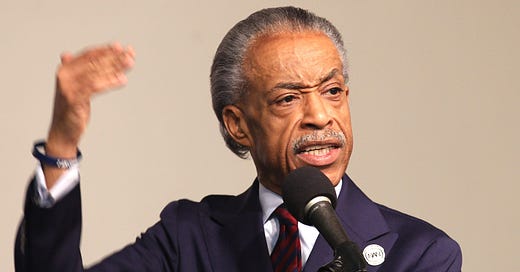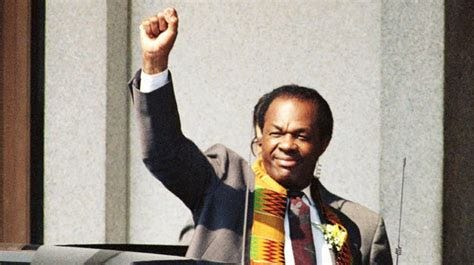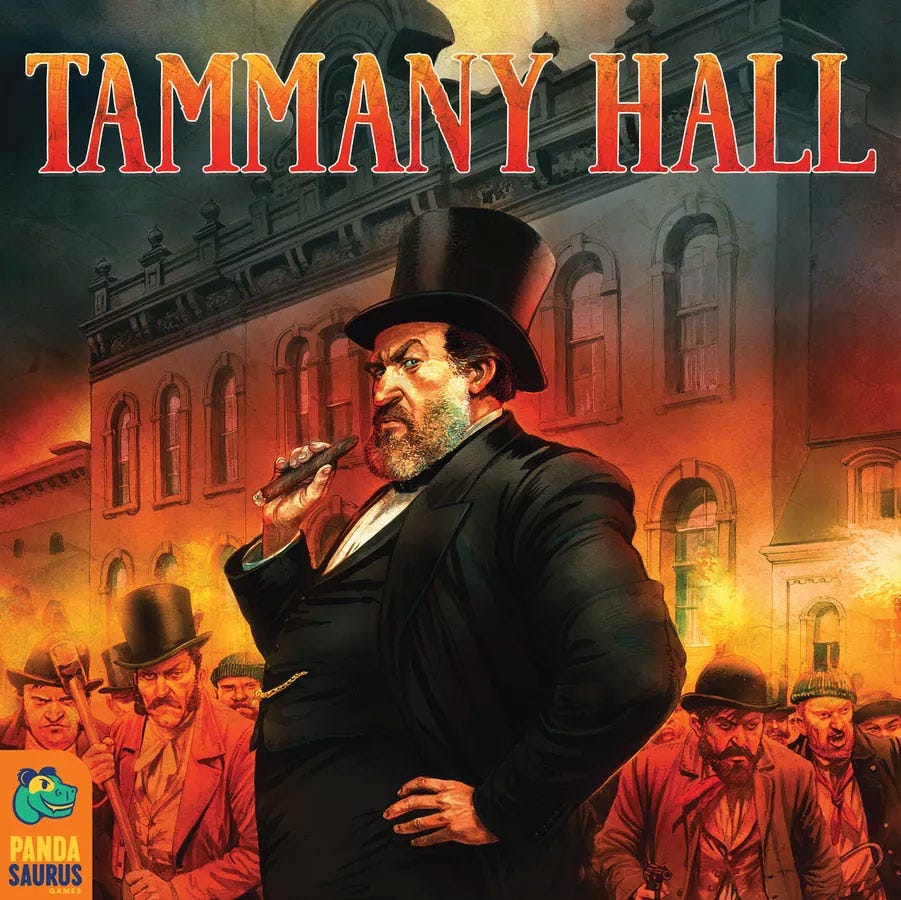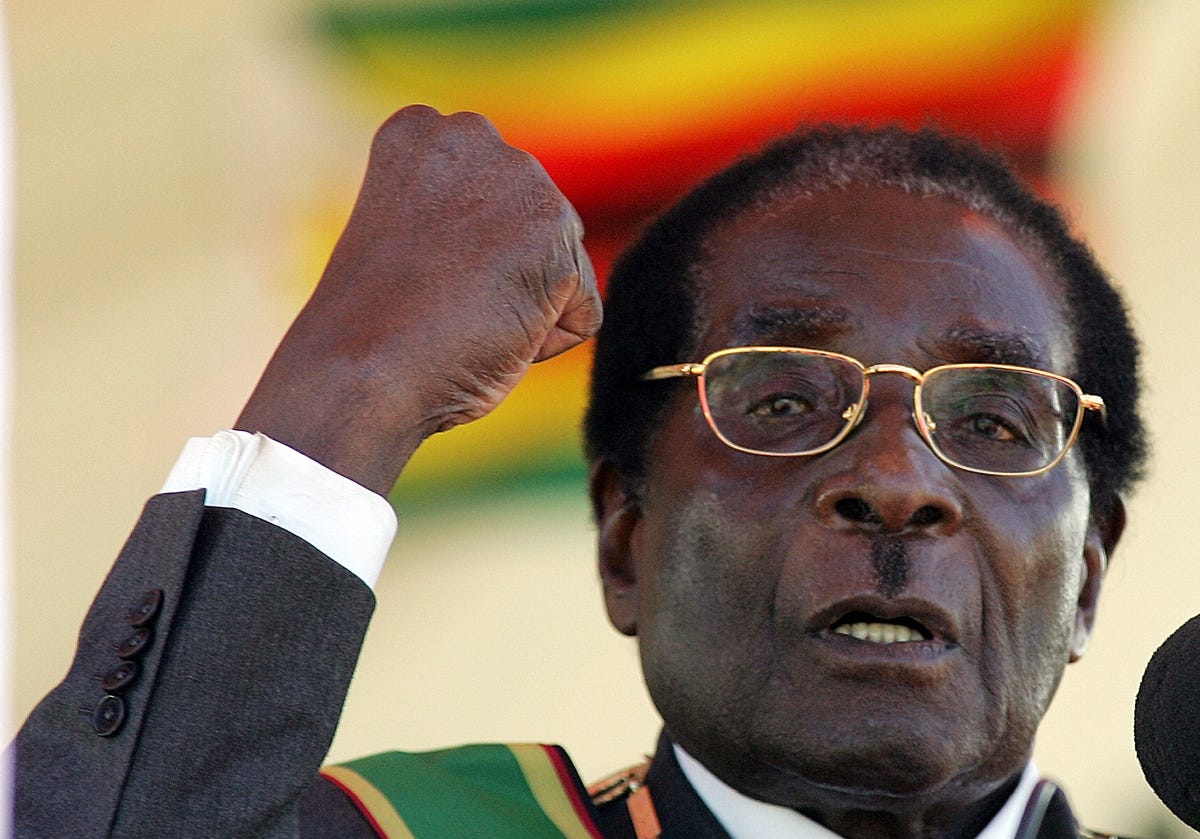Since the early 2010s, there has been a drastic shift to the ideological Left among the professional class who dominate most American institutions. Most obviously, this has propelled many institutions to publicly endorse ideologies that were considered fringe just 20 years ago. These institutions include:
The Democratic party
Universities
Media
Social Media companies
Digital Technology companies
The term that has caught on to identify this new ideology is “Woke” or “Wokeness.” Some prefer the terms Social Justice, Critical Social Justice, the Successor ideology, or Critical theory. Personally, I think the term “Critical theory” is the most accurate, though I have no desire to haggle over labels. And those who object to the use of any labels and pretend that there is no new ideology are just being dishonest.
For the purposes of this article and others I will use the following terminology:
Critical theory is the Leftist ideology that states that:
All societies are divided into a zero-sum group struggle between Oppressors and Oppressed. Typically, the focus is on race, gender, and sexuality, but the concept can be applied to hundreds of other characteristics where one side is more successful than the other side.
All inequalities between individuals are due to the unequal outcome in the struggle between those groups.
It is our ethical obligation to publicly side with the Oppressed in their struggle.
The Woke are the people who use the terminology of Critical theory in their daily lives and flamboyantly display their sympathies for the Oppressed and against the Oppressor. It is important to realize that:
Very few of the Woke actually understand the doctrine of Critical theory.
Many people on the Center-Left pretend to be Woke in order to protect their career, network of friends, and their social standing.
So Critical theorists define the ideology, while the Woke act as if they have fully bought into the ideology.
Ultimately Critical theorists and the Woke believe that they can create a better world by intensifying the resentment of those who have less against the successful. Unfortunately, this is exactly the opposite of what they should be doing.
The best way to get ahead in any profession is to copy the successful. Unfortunately, the ideologies of the Left have a long history of undermining the admiration of the successful that is necessary to promote copying them.
Read more of my articles on American Progress and Upward Mobility:
You might also be interested in reading my “From Poverty to Progress” book series:
What does all of this matter to promoting Upward Mobility today? It matters because to promote upward mobility today, we must understand how it was done in the past. The modern left has a clear vision of how to promote progress and upward mobility:
Large centralized social programs to ensure that the poor and near-poor have a decent standard of living
Strong regulation to constrain corporations
Hostility to the idea that the underprivileged need to change to conform to the ways of more successful members of society.
A politics based upon solidarity with the disadvantaged and resentment of the successful.
The problem is there is no historical record of any of these principles working to promote upward mobility for either individuals, nations, or minority groups within nations. They are just a series of assumptions based upon a strong moral preference.
The actual record of individuals who have achieved upward mobility and nations and sub-national minorities to achieve progress is very different. What is most troubling is that the evidence for what works is exactly the opposite of the assumptions listed above.
Not surprisingly, opposition to the very concept of progress is most intense on the Left.
The Politics of Resentment
There is nothing new about the Politics of Resentment. It has been used by authoritarian leaders throughout the world, and it has been used by ethnic leaders throughout American history. While most ethnic groups who migrated to the United States focused on learning new skills and the ability to cooperate with the natives so they could better compete in the marketplace, a few ethnic groups focused heavily on politics. Each of these groups developed a political style that rallied support by generating resentment against more successful groups.
These groups were:
White Southerners
Irish-Americans
Blacks
Let’s take a look at each.
White Southern politicians
Perhaps the most important group to choose this strategy were White Southerners, particularly those living in the Deep South. Going back at least to 1820 the politics of White Southerners revolved around resenting Northerners. Every election became an opportunity to rail against the hated “Yankees.” Particularly, leading up to and following the Civil War, it was a veritable obsession. The political line was that White Southerners had to stick together or they would be dominated by Northerners.
The “Solid South” (i.e. almost universal white support for the Democratic party) gave a small minority of white southerners a veto power over the Democratic party for one century. From 1874 to about 1970, White Southerners dominated the Democratic state parties, and they leveraged their dominance over 14 Southern states to control the Democratic party on the federal level.
This small group effectively controlled:
the state and local governments in the South
25% of the seats in the US House and Senate
A veto power over the Democratic presidential nomination process. The latter was institutionalized by the “Two-Thirds rule” from 1832 to 1936.
For a century the South was a de facto one-party state. And election returns were so lopsided as to resemble Communist regimes more than democratic societies. It was only in the 1980s that this voting practice collapsed among White Southerners.
White Southerners acted as if elections were about expressing racial and regional identity rather than choosing leaders. Let's look at the options open to White Southerners. Within the same nation, speaking the same language and worshipping the same God, Northerners were experiencing progress and upward mobility. They were growing in wealth, power, and freedom. Any logical person would immediately wonder if the North was doing something right that the South could copy.
Unfortunately, politics is rarely based on logic. While the possibilities for rapid development in the South by copying what worked in the North existed for a century, White Southerners proudly and angrily ignored the possibilities. Instead, they:
stewed in resentment over losing the Civil War and
blamed the Yankees for their economic stagnation.
Anyone who dared to suggest copying the North was branded a traitor.
Worse White Southern Democrats used their power to continue oppressing Blacks by implementing and upholding Jim Crow segregation. While the North could forcibly abolish slavery in the South, it was not willing to stand up to flagrant abuses of Black constitutional rights. According to the logic of white Southerners at the time, if the Yankees are going to oppress us, well then we just keep what little power and dignity we have left by oppressing Blacks. This is the zero-sum logic of resentment.
While White Southerners perceived this system of oppression and standing together as one helping their group, it achieved the opposite. Their refusal to copy Northerners kept the South an economic backwater for over a century. The South carried on many of the characteristics of an Agrarian society long past when they were necessary.
Fortunately, these attitudes have slowly declined since the 1960s. This was partly due to the migration of white northerners to the South, but it was mainly due to blacks finally achieving voting rights in 1965. With Blacks now able to vote in significant numbers, White Southern Democrats had an electoral incentive to attract their votes.
At the same time, Northern manufacturing corporations sought to take advantage of lower wages in the South by building factories in the region. Since 1970 most Southern states have experienced strong economic growth, and the politics of resentment have declined significantly.
Black politicians
One of the great tragedies of Southern politics is that Black Americans have inherited a similar political strategy: unstinting loyalty to the Democratic party as a means of expressing ethnic solidarity. The results have been equally disappointing.
From the Civil War until the 1930s, Blacks overwhelmingly supported the Republican party. If White Southerners were going to vote as a block for Democrats to repress them, then Blacks would use essentially the same strategy by supporting the opposite party. Starting in the 1930s this monolithic behavior began to loosen up. Then in the 1960s the modern pattern of 90+% of Blacks voting for the Democratic party began to emerge.
Just as White Southerners used political solidarity and resentment against their oppressors as their means to promote upward mobility, so too did Blacks. Rather than focus on copying more successful groups, their political leadership focused on channeling resentments against their oppressors into political power.
The rewards for doing so were jobs and social programs that seemingly benefitted their people. Black politicians essentially used the government to redistribute the benefits of progress to their supporters. Rather than achieving these results on their own by copying more successful groups, Black voters sought to do so as a group via politics. Block voting was essential to making this happen.
Irish politicians
A third social group that focused on politics was Irish Catholics. American politics have changed so much over the last few generations that people forget how dominant a role Irish Catholic politicians played in American politics.
When the original Irish settlers came to America in the early 19th Century, they came from a land with far simpler technology, skills, and organizations. Though they shared a common language with native-born Americans, these immigrants were devoted Catholics in a land dominated by fervent Protestants.
The first generation of Irish immigrants had great difficulty prospering in their new lands. Low wages, hard work, diseases, violence, prostitution, and despicable housing conditions were the typical experiences of first- and second-generation Irish Catholics.
In response, Irish Catholics chose politics as their primary means of achieving upward mobility. While they lived in Republican states dominated by Protestants, Irish Catholics quickly took over the Democratic party in the urban areas where they predominated.
Take a second look at the electoral map above. Inside the overwhelmingly Red Northeast and Midwest, you can see little Blue islands. These are large metro areas dominated by Irish Catholic Democrats.
Even in ethnically mixed cities, Irish politicians dominated the leadership of the Democratic party. From the 1850s until the 1960s, the stereotypical Democratic leader in the North was a cigar-chomping Irish Catholic politician. These politicians practically invented the urban political machines that dominated Northern urban politics as much as the Democrats dominated the Deep South.
While Irish Catholic politicians did not promote resentment in politics as much as White Southern and Black politicians, they certainly promoted the idea of ethnic and religious solidarity. If you were a Catholic, particularly an Irish Catholic, it was expected that you loyally voted Democratic. And the Democratic party would reciprocate by giving jobs and sponsoring projects for the loyal Irish Catholic voters. The Irish were masters at redistributing the gains of progress via the political system.
I go into more detail on the Irish Catholic urban machines in this article.
Did this political strategy work?
Did White Southerners, Blacks, and Irish benefit more from block voting to ensure redistribution of the gains of progress via government? Would they have benefitted more from individual-level copying of the more successful White, Northern Protestants?
All three social groups were capable of excelling in certain professions. I do not think that it is a coincidence that all three groups were disproportionately successful when they chose careers in
politics
athletics
music, and
religion.
Is success in those fields a necessary first step in the process of integration and upward mobility? Did these groups all descend from societies that made this alternate pathway to success a necessity?
We will likely never know, but we do know that groups who chose other pathways have been more successful. Outside of the three groups discussed above, very few ethnic groups were heavily involved in politics or ideology.
In fact, as a general rule, ethnic minorities played very little role in American politics at all, except for periodically voting in election years. The Dutch, Scots, Germans, Norwegians, Swedes, Danes, Italians, Polish, Jews, Russians, Chinese, Japanese, Koreans, Indians, Native Americans, and other social groups were typically apolitical and non-ideological. They voted and had political opinions, but politics was rarely a major part of their lives.
Though it is difficult to prove, I believe that the pathway of political solidarity, resentment, and redistribution hurt all three groups. It is not a coincidence that all three groups have lower overall levels of income, wealth, and education than the rest of America. Those groups that chose to integrate culturally and economically by copying the skills, habits, and values of native-born Americans have done significantly better than those who chose the path of politicized resentment.
The true winners were the political leaders
The politics of resentment has been common among many ethnic groups because it benefits political leaders. Ethnic resentment unites a group around little more than negative emotion. Members of that group then fall into line behind the elites within that group. So while the politics of ethnic resentment camouflage itself as a “politics of the people,” it is a politics of elite domination and popular submission. The followers typically get little more than a good feeling when some of their group is thrust into positions of power.
And that is why the Politics of Resentment persists. It works for political leaders who promote it. Unfortunately, their own people pay the price.
Let’s find a better path.
Read more of my articles on American Progress and Upward Mobility:
You might also be interested in reading my “From Poverty to Progress” book series:











"I do not think that it is a coincidence that all three groups were disproportionately successful when they chose careers in
• politics
• athletics
• music, and
• religion.
Is success in those fields a necessary first step in the process of integration and upward mobility? Did these groups all descend from societies that made this alternate pathway to success a necessity?
We will likely never know, but we do know that groups who chose other pathways have been more successful. Outside of the three groups discussed above, very few ethnic groups were heavily involved in politics or ideology. "
It occurs to me that those four (and perhaps a few other) "career" paths or endeavors tend to be orthogonal to the actual creation of wealth. Now, recreational services are a form of wealth, but they are not what we usually consider as contributing to our physical well being. Certainly there are a subset of the population that have superior capabilities in these areas and can and do make a good living at them, plus they enhance the the lives of us following more mundane "wage slave" career paths.
But if you want food on the table, gas for your car, and a road and bridge to drive it on or over, you are looking to other folks than the practitioners of the above four areas.
"Their refusal to copy Northerners kept the South an economic backwater for over a century."
What exactly did you want them to copy? In what ways did the South stifle copying the north? Specifically?
During the reconstruction era black votes gave the Republican Party dominance of several southern states? What did they do with it? From what I can tell, they ran those states about as well are black politicians run Detroit and Baltimore today.
The real reason the the GOP gave up on Reconstruction is that black run southern states were actually worse then white run southern states.
Before the advent of air conditioning, the south was pretty inhospitable. It didn't have great human capital either. It's not clear they would have had a comparative advantage in much outside agriculture. Even their comparative advantage in manufacturing today is mostly because they don't have unions and the local government is less socialist.
"From the 1850s until the 1960s, the stereotypical Democratic leader in the North was a cigar-chomping Irish Catholic politician."
Eventually urban progressives used violent blacks to chase them out to the suburbs in the 1960s, which gave the progressives more power but also made the cities pretty shitty to live in.
What's missing from all this, my dear sweet summer child, is the notion of capability. Were these groups capable of copying high IQ Northern Europeans.
In order:
1) Irish - Mostly
2) Southern Whites - Less
3) Blacks - Nope
I of course find the race hustlers disgusting. And I think Southern Whites* were very self destructive and morally reprehensible (especially leading up to the civil war, which was colossal failure on their part and they deserved what they got).
But generally, they worked with what they had. Often they were exploited by their leaders, but if the other side got their leaders in they would be exploited even more.
*The Southern white situation is complicated because its split between the planters and the Scott-irish.